
Lecture
UIA World Congress 2023 Copenhagen PRE-EVENTS
Pre-event : Architecture and The Time of Making
2022.12.02 4:30am EST / 10:30am CET / 5:30pm China
The symposium is a pre-event leading up to the UIA World Congress 2023 Copenhagen Sustainable Futures – Leave No One Behind, that will take place in Copenhagen July 2-6, 2023. The congress will focus on the multiple ways in which architecture and the built environment can support the fulfilment of the UN 17 Sustainable Development Goals.
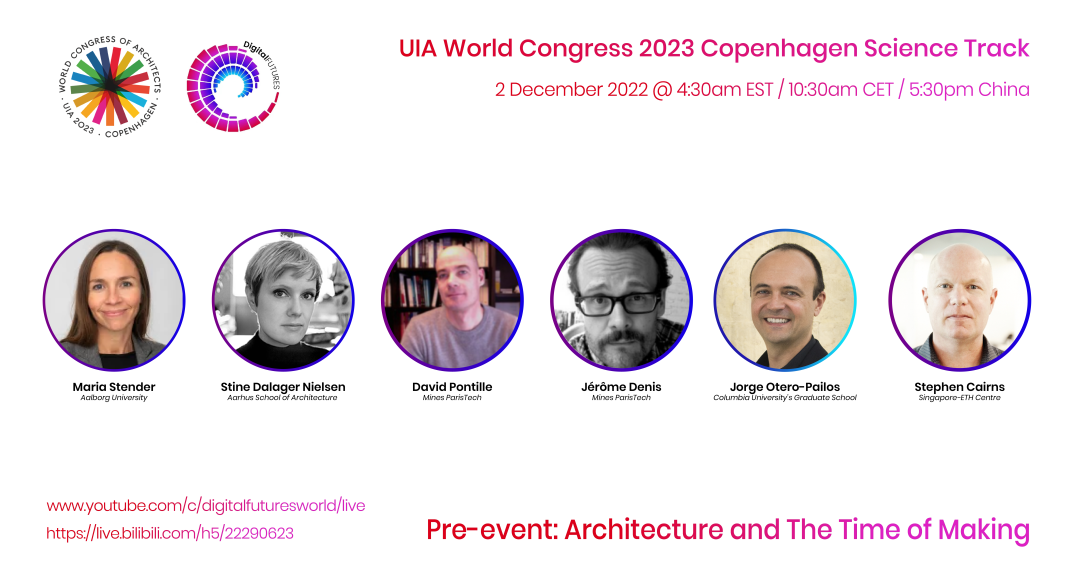
Presentations and keynotes by:
Maria Stender, Anthropologist and senior researcher, Department of the Built Environment at Aalborg University
Stine Dalager Nielsen, Architect and Conservationist, PhD Fellow, Aarhus School of Architecture
David Pontille and Jérôme Denis, Sociologist, Centre for Sociology and Innovation, Mines ParisTech
Jorge Otero-Pailos, Director and Professor of Historic Preservation at Columbia University’s Graduate School of Architecture, Planning, and Preservation
Stephen Cairns, Future Cities Lab Global, Singapore-ETH Centre
Topic:
The international symposium examines architecture as process; process of becoming, process of decay and process of change. By inviting a broad group of interdisciplinary researchers and practitioners from architecture, building restoration, architectural anthropology and consumption studies, our aim is to question the axiom of permanence and stasis in architectural conception and value to instead bring new focus on the manifold entangled histories and practices of the built environment as a result of a new percept of materials as inherently time-based and of construction as fundamentally continual.
Full Programme:
17:30 - 23:00
Presentations and panel debates
-Personal Bio-
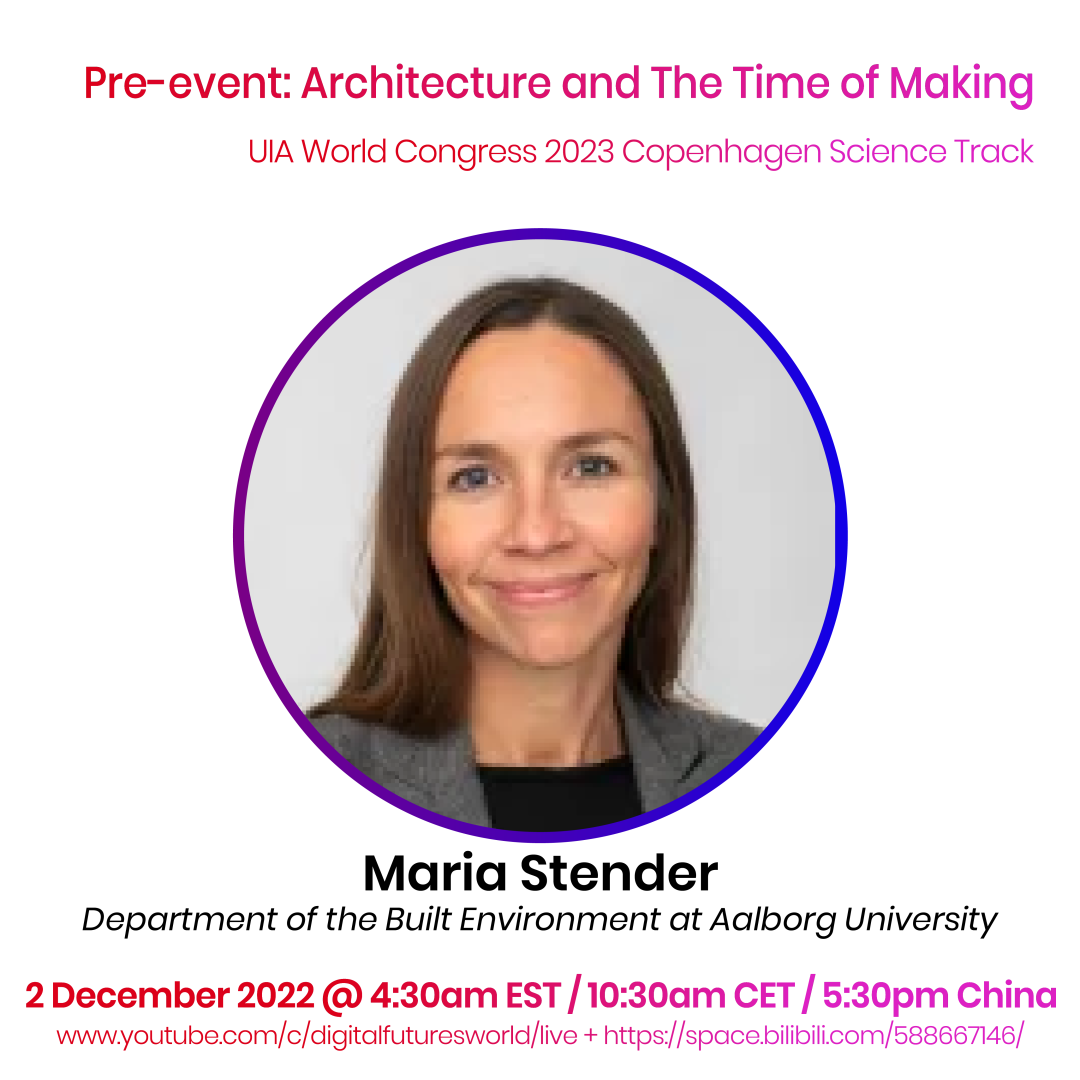
Marie Stender, Senior Researcher, Head of the Research Group Transformation of Housing and Places, Department of the Built Environment, Aalborg University, Copenhagen, Denmark. Stender is an anthropologist and PhD in Media, Architecture and Design, and her research focusses on the relationship between social life and the built environment. Based on ethnographic fieldwork she contributes with knowledge of how people and communities interact with their urban and domestic surroundings, and how societal changes materialize in built environments. Stender has contributed to research and praxis on how to enhance and assess social sustainability in urban neighbourhoods, and has developed evaluation designs and methods related to regeneration of disadvantaged neighbourhoods in collaboration with various stakeholders in the housing and building sector. She is the co-founder and project manager of the Nordic Research Network for Architectural Anthropology and has published books and articles on architectural anthropology, place-making, disadvantaged neighbourhoods and social sustainability.
-Personal Bio-
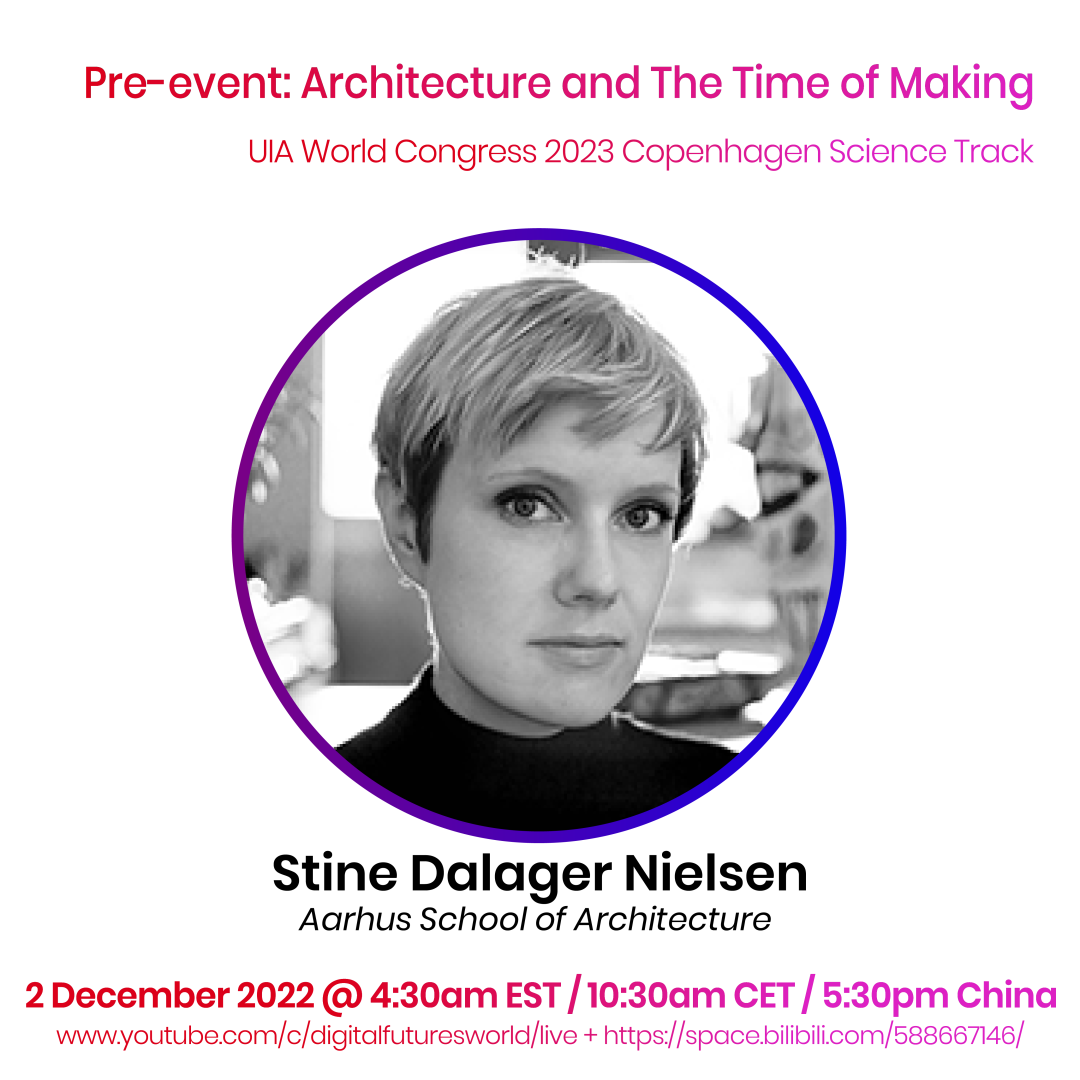
As an architect she is able to work within a broad spectrum both theoretically, creatively and practically. She has experience with listings and the legislative framework surrounding sustainable conservation, regeneration plans and strategies as well as presentations of these to clients and fellow architects. Her interest lies within preservation, cultural heritage, conservation, regeneration and transformation together with the social and societal fabric in-between these fields and how to combine them in an interdisciplinary, architectural approach. She believes in an approach acknowledging past, present and future periods of a building and hence opens a dialogue between these to create a harmonious inter-relational project. This way numerous stories will be preserved, retold and continued.
-Personal Bio-
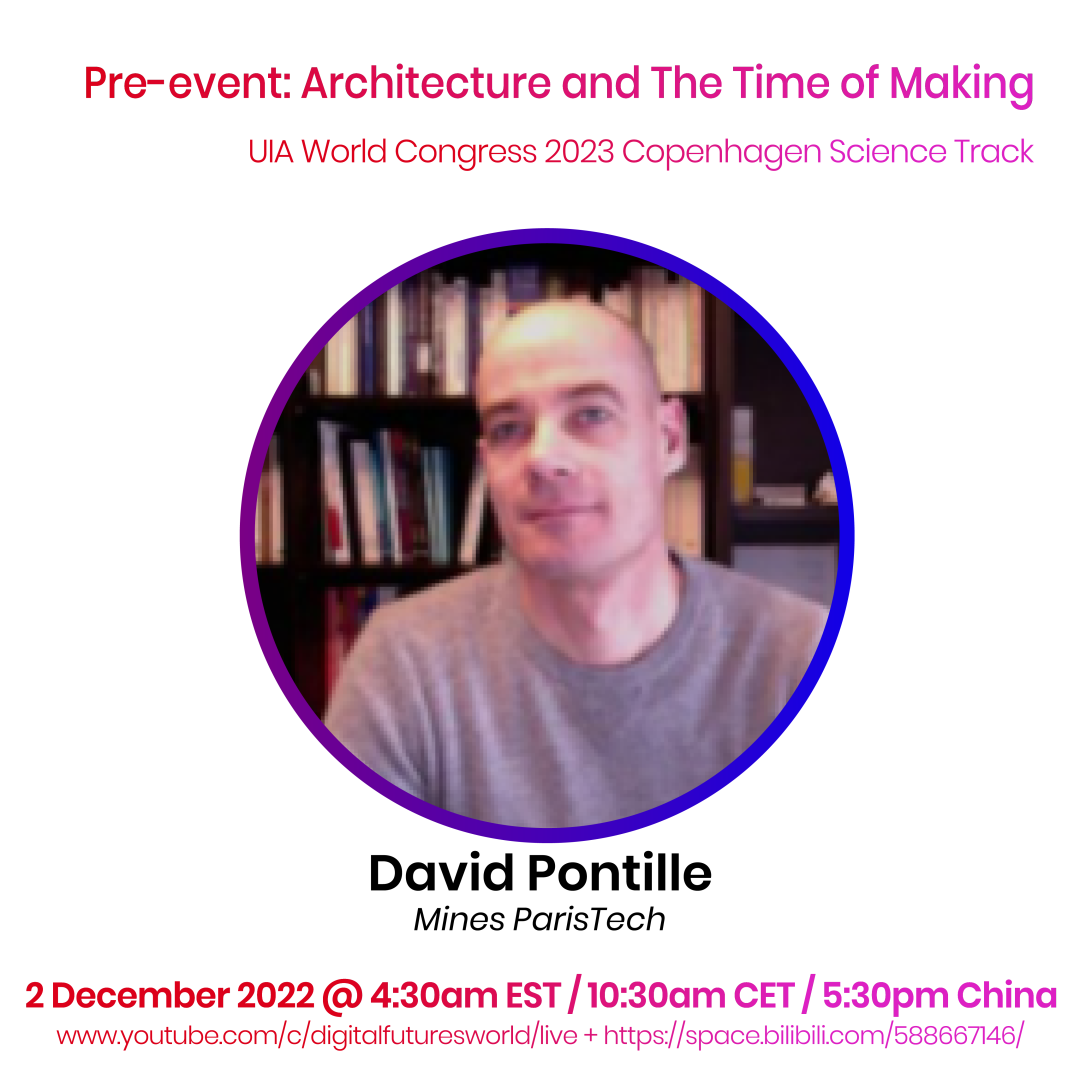
David Pontille's work is at the intersection of science and technology studies, the anthropology of writing, and the ethnography of work. His research is organized into three themes: writing practices in different professional environments, technologies for evaluating scientific research (signature and attribution of productions, journal rankings, bibliometric tools, peer review), and policies for maintaining technologies and infrastructures.
Currently, he is interested in recent transformations of scientific contribution, associated with new forms of valorization and modes of qualification of cheating. At the same time, with Jérôme Denis, he is developing a program devoted to maintenance policies which, through in-depth ethnographic surveys, particularly in urban environments (subway signage, graffiti removal), feeds a theoretical reflection on the concern for fragility.
-Personal Bio-
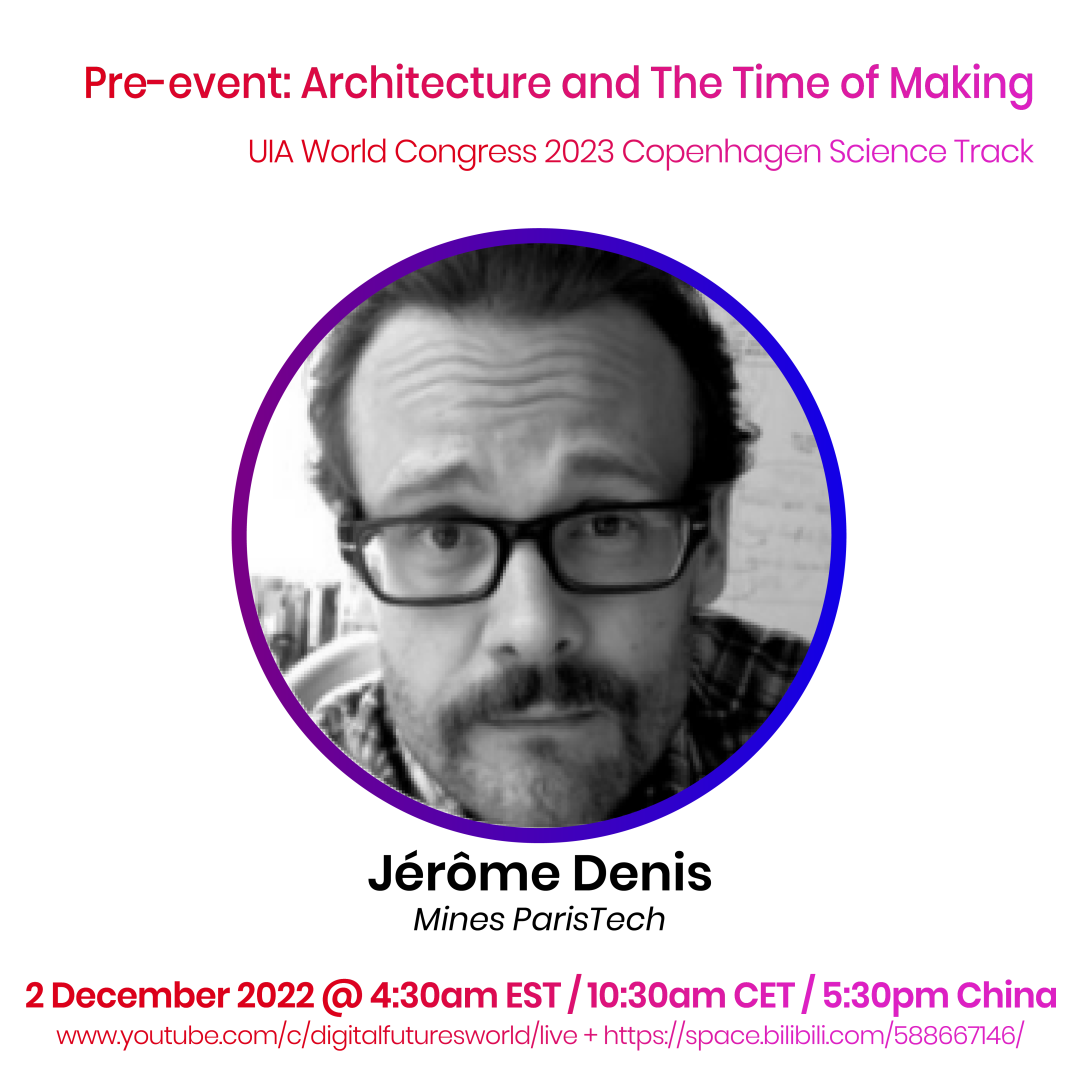
Jérôme Denis' research focuses on two main areas: data work and maintenance practices.
Based on surveys conducted in companies from different sectors and public administrations, he seeks to understand what is at stake in the operations of data production and maintenance and in the modalities of their relative invisibilization. In the course of these investigations, he highlights the diversity of the relationships that are woven between what counts as data and what counts as work.
-Personal Bio-
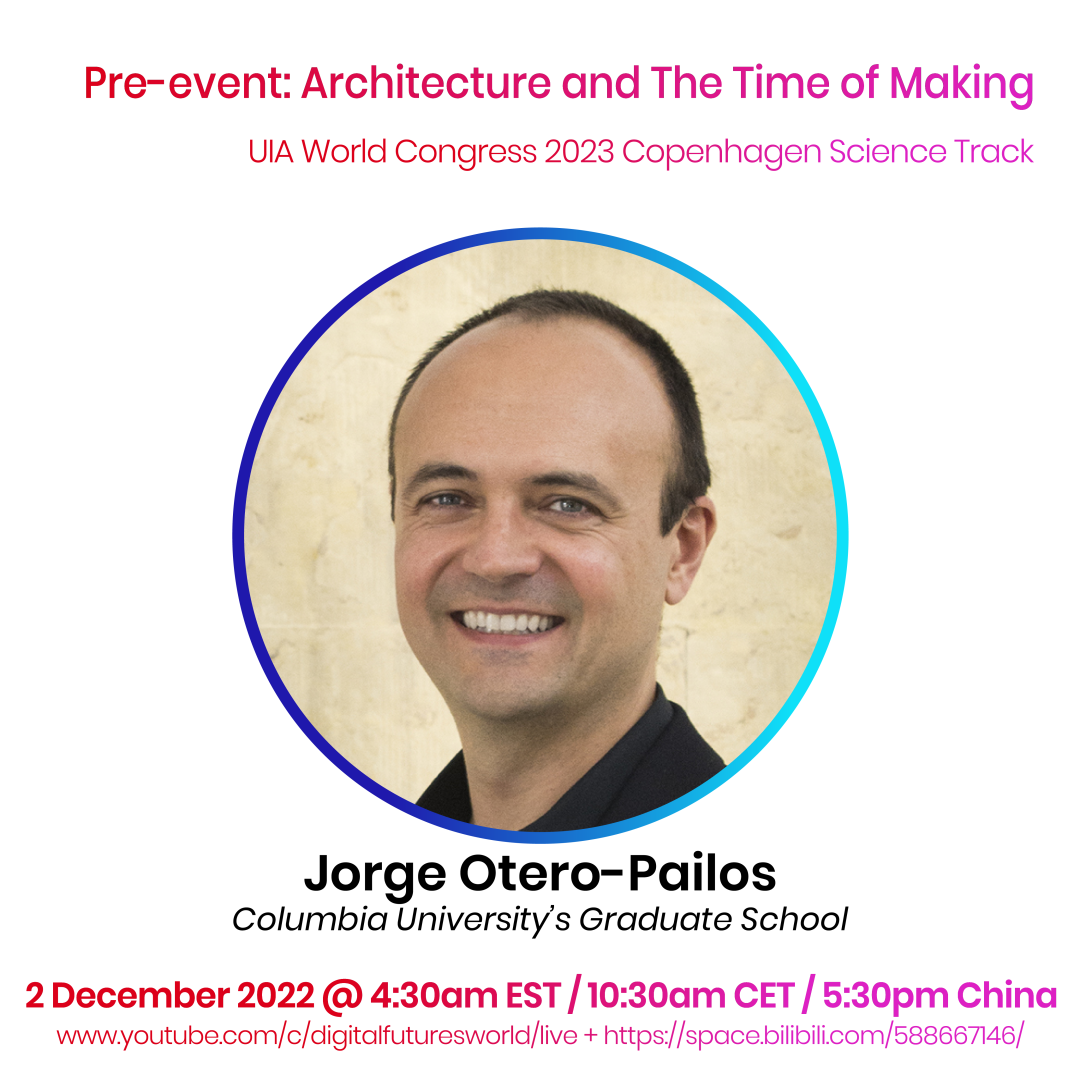
Director and Professor of Historic Preservation at Columbia University’s Graduate School of Architecture, Planning, and Preservation, Jorge Otero-Pailos is an architect, artist, and theorist specializing in experimental forms of preservation. He is the founder and editor of the journal Future Anterior, co-editor of Experimental Preservation (2016) author of Architecture’s Historical Turn (2010) as well as a contributor to scholarly journals and books including the Oxford Encyclopedia of Aesthetics and Rem Koolhaas’ Preservation Is Overtaking Us (2014). Jorge Otero-Pailos is a member of the Academy of Arts and Sciences of Puerto Rico, and has received awards from major art, architecture, and preservation organizations, including the Kress Foundation, the Graham Foundation, the Fitch Foundation, the Canadian Center for Architecture, UNESCO, and the American Institute of Architects. He studied architecture at Cornell University and earned a doctorate in architecture at M.I.T.
-Personal Bio-
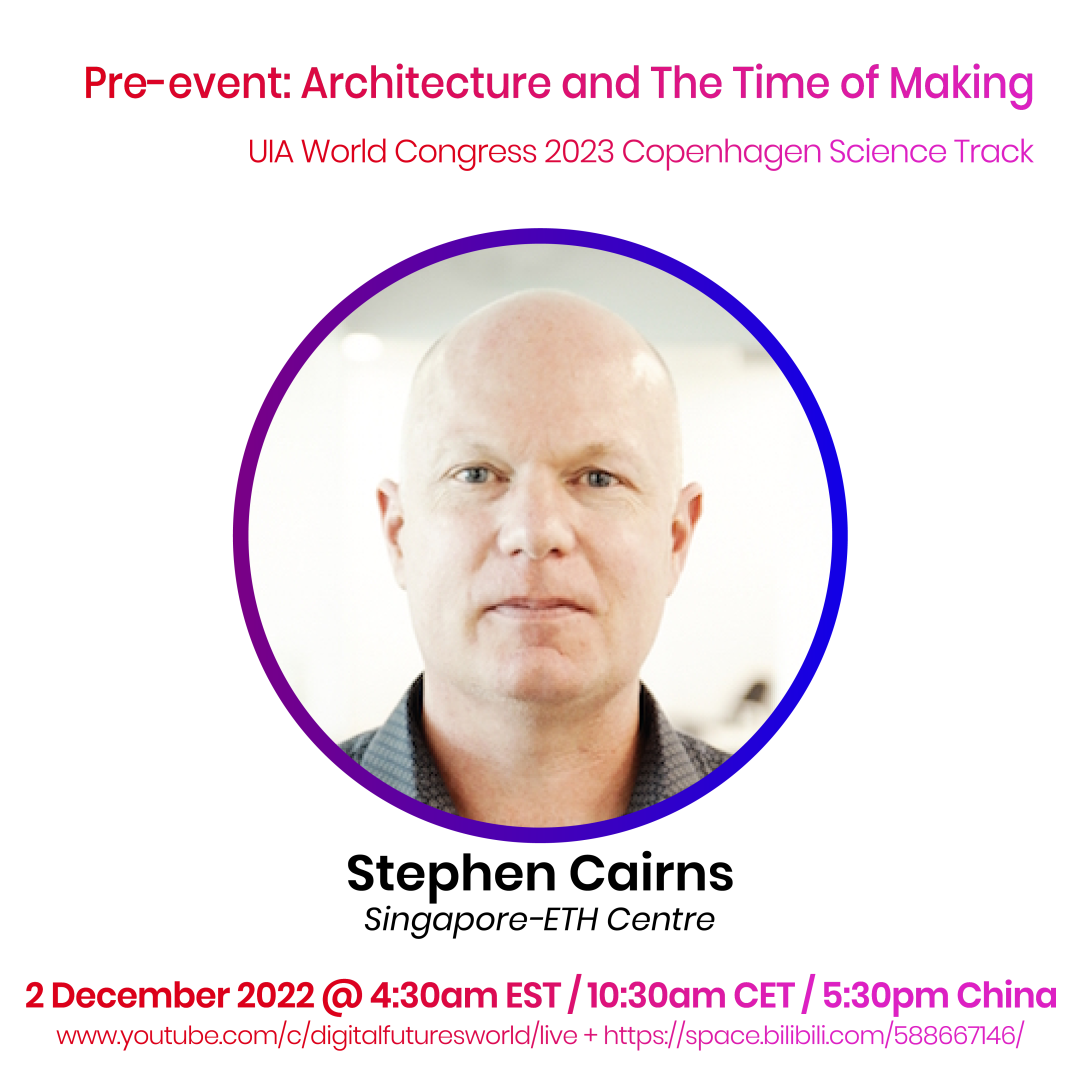
Stephen Cairns completed an undergraduate degree in anthropology and classical studies at the University of Otago. He trained in architecture at the University of Auckland, and practiced as an architect in New Zealand, Australia and the Pacific, designing the award-winning Headquarters for the Secretariat of the Pacific Community in Noumea. He subsequently undertook doctoral studies at the University of Melbourne, where he wrote a thesis on the colonial architecture in Java, with an emphasis on aesthetics and the politics of representation.
 ABOUT US
ABOUT US




